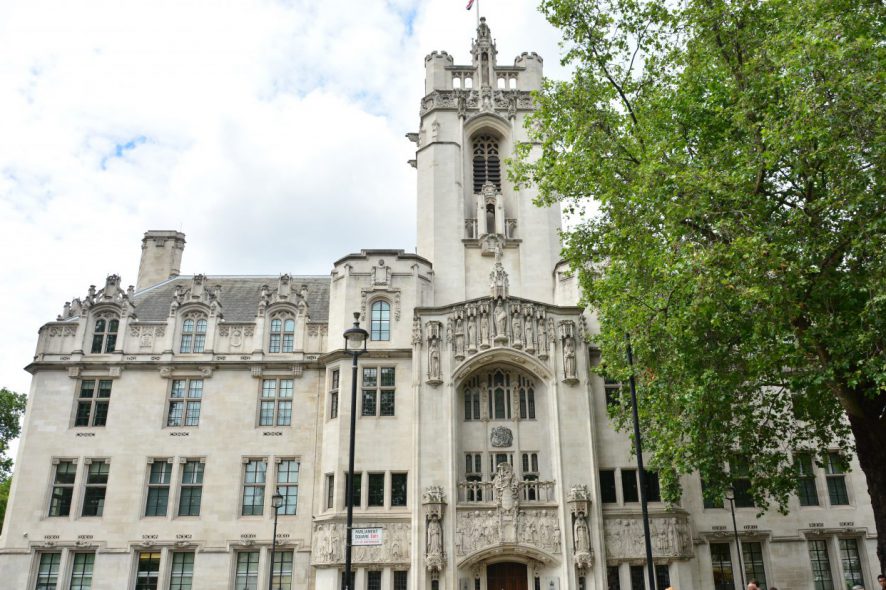Supreme Court of United Kingdom: Hearing an appeal against the Draft Order proposed by the Lord Chancellor for introduction of a ‘residence test’ as eligibility criterion by amending Schedule 1 of the Legal Aid Sentencing and Punishment of Offenders Act, 2012 (LAPSO), the Court held that the power of the Lord Chancellor under Section 9(2)(B) in relation to ‘omit and vary service’ does not allow him to exclude a section of individuals based on their personal circumstance or characteristic, from being entitled to civil legal aid. The Court remarked that the power extended only to omitting and varying services and not creating criterion for eligibility of individuals, without any regard to the issue or service involved.
It was argued that the Draft Order in its ‘residence test’ sought to exclude all individuals who were not lawful residents of UK, Crown Dependencies or British Overseas Territories, or had been so in the past (for atleast 12 month) from being eligible for civil legal aid under the Act, with certain specified exemptions in the case of members of armed forces and their families, asylum seekers and children below the age of 12 months. The Court acknowledged the order as a subordinate legislation, required to be passed by the Parliament and with reference to F Hoffmann-La Roche & Co. v. Secretary of State for Trade and Industry [1975] AC 295, 365 held the lawfulness of such instruments could be challenged before the courts.
The Court held that the purpose of Part 1 of Schedule 1 of the LAPSO, which the proposed order sought to amend, is to channel civil legal aid on the basis of: the nature and importance of the issue, an individual’s need for financial support, the availability of other fundings, etc. among other things. The exclusion of a specific group of people from the right to receive legal services, on the ground of personal circumstances or characteristics, as that of residence, which have nothing to do with the nature of the issue or services involved or the individual’s need, or ability to pay for the services is simply not within the scope of the power accorded under Section 9(2)(b) of LAPSO. Therefore, it could not be accepted that the power of Lord Chancellor under Section 9(2) can be extended to exclude a whole class of individuals from the scope of most areas of civil legal aid by reference to their residence. The Court, hence, held the Draft Order ultra vires to the provisions of the statute. [R v Lord Chancellor [2016] UKSC 39, decided on 13.07.2016]






